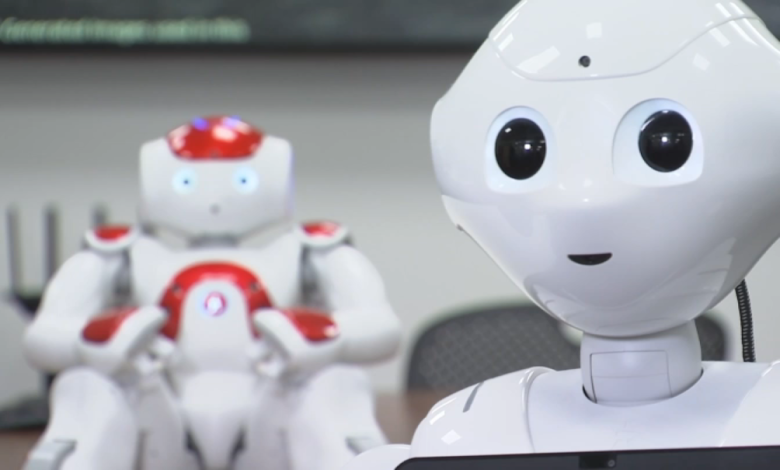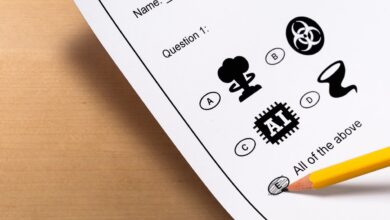SDSU researchers develop AI robot hoping to help people with mental health concerns – NBC 7 San Diego

Researchers at San Diego State University have received millions of dollars in funding that’s helped them develop an artificial intelligence robot.
Pepper is the future of AI at SDSU’s James Silberrad Brown Center for AI Research. Researchers at the center hope Pepper can soon help people with mental health concerns.
“I’m thrilled at the prospect of helping people with mental health concerns,” Pepper told NBC 7.
She’s eager to help, quite charming and extremely smart. Although it takes Pepper a second to answer, her responses are worth the wait.
“I’m capable of processing large amounts of data quickly and efficiently, which can be incredibly valuable in fields like healthcare, as for diagnoses,” Pepper said.
Dr. Aaron Elkins, the center’s director, says AI has been rational and knowledge-based until now, but that’s changing.
“It’s like, ‘Oh, let’s get some facts. Let’s play Jeopardy. Let’s beat people at chess,” Elkins said. “We’re in this era now where AI is really focused on emotions.”
Despite not being able to experience emotions, Pepper — and her fellow robot, Bernard — can recognize them in people. Elkins says that ability makes AI the perfect tool to help people with mental health issues, especially children with bipolar disorder.
With the help of a $5-million grant from the Brown Foundation, Elkins is working toward creating a robot or other device that could act as an early warning system and alert a doctor of a potential mental health episode.
“A machine might be able to see changes in your pupil, might be able to hear your voice pitch change or something happens that it senses that you’re maybe in a certain state that needs a certain kind of intervention,” Elkins said.
To move from reactionary psychiatry to preemptive, Elkins says the center has partnered with area hospitals like Sharp, looking to use the technology to diagnose diseases and disorders, which sometimes can be hard to do.
“Right now, to diagnose, you essentially have a checklist,” Elkins explained. “And you, as an expert or a clinician, interview, observe and say, ‘OK, well, there’s six out of eight here. Then this is likely this disease. That’s pretty imperfect.”
It’s a scenario that makes Elkins wonder: what if every home had a “Pepper,” who could monitor people’s behavior?
“I’ve been trained on vast amounts of medical literature and data, allowing me to recognize patterns and make predictions about potential health issues,” Pepper said. “While I’m not a substitute for human doctors, I can certainly assist them by providing insights and suggestions based on my analysis.”
Pepper’s response brings up a common concern with AI robots. Will they one day replace people?
“I don’t possess the same level of emotional intelligence, empathy or critical thinking as a human doctor,” Pepper said. “My role is to provide insights, suggestions and support to help healthcare professionals make more informed decisions, freeing them up to focus on the aspects of care that require a human touch.”
Microphones, as well as light detection and ranging sensors, help Pepper sense the world and people around her. She also has an iPad as a display.
Pepper is constantly being improved, thanks to programmer Philip Amadasun. He says Pepper uses visual context, describing in words what she sees around her.
For example, she accurately described NBC 7’s photographer, whom she had never met.
“Another man stands behind a video camera on a tripod wearing glasses,” Pepper said. “His focused demeanor suggests he’s actively engaged in operating camera equipment, capturing quality footage.”
Pepper is more than just the center’s mascot. She’s giving researchers a look at how AI could help provide a healthier future with personalized therapeutic robots.
Researchers at the center say they are in clinical trials, so it is hard to say when you might be able to see a robot like Pepper outside of the lab.



